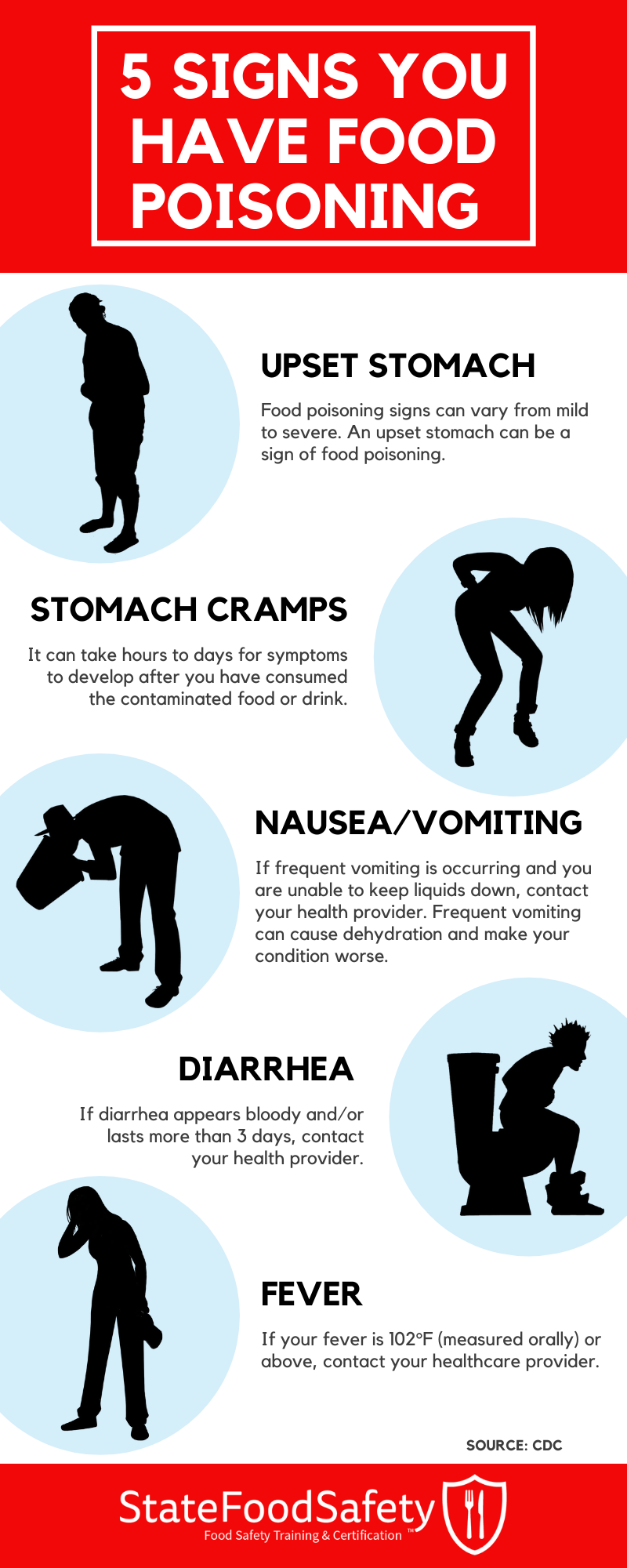
The Centers for Disease Control estimates that 48 million people get sick each year from foodborne illnesses. When you become sick from a foodborne illness, you may not be sure what you should do. We’ve answered some of the most common questions about foodborne illness to help you know how to handle it when it happens.
Am I contagious?
Although it’s a common belief that foodborne illnesses aren’t transmissible by direct or indirect contact, many are highly contagious. The five foodborne illnesses food workers must report to their managers (Hepatitis A, shigella, norovirus, salmonella, and E. coli) are all contagious. If you suspect you are infected, do not handle food that will be consumed by others.
Report your symptoms to your supervisor. Unfortunately, 51 percent of food employees have admitted to working while they are sick. Avoid endangering consumers and fellow employees by letting your supervisor know you are ill. The FDA requires you to report your symptoms to your manager if you are experiencing vomiting, diarrhea, jaundice, or fever accompanied by a sore throat.
Should I see a doctor?
After coming down with a foodborne illness, you may wonder whether you should see a doctor or not. Because there isn’t much a doctor can do for some illnesses while others can be severe and life threatening, making the decision can be confusing.
Sometimes food poisoning can’t be diagnosed. The Mayo Clinic suggests seeing a doctor if vomiting continues for more than two days, diarrhea persists several days or turns bloody or black, lightheadedness or fainting occurs when standing, fever reaches over 101°F, or confusion develops.
If you suspect botulism poisoning, it is important to seek emergency attention immediately. Botulism cells produce a neurotoxin that affects the central nervous system and can be life threatening if left untreated. Symptoms include headache, blurred vision, difficulty breathing, muscle weakness, and paralysis.
How do I treat foodborne illness symptoms?
Your number one goal when you are feeling ill is to feel better. If you have determined that you do not need to go to a doctor, you may be looking for ways to treat your symptoms.
Avoiding foods for the first few hours while your stomach settles can be helpful. When you feel ready, start eating mild, non fatty foods.
If you are experiencing diarrhea, you may be tempted to take medicine to stop it. The best thing to do is let nature run its course. If you think you should take some, talk first to your doctor. Be sure you are drinking plenty of water. One of the biggest problems with food poisoning, especially in young children and the elderly, is dehydration. Vomiting and diarrhea cause the loss of fluids which are vital for your body. You may need to start by taking small sips, but it is important to replenish the water you have lost.
Should I report my foodborne illness incident?
The CDC asks that the general public report incidents of foodborne illness to their local health department. This helps to identify any possible outbreaks. If you or someone you know believe they have been exposed, ask to talk to the environmental or sanitation specialist of your city or county health departments.
What can I do to prevent future foodborne illness outbreaks?
If you are just getting over a case of food poisoning, you know it’s something you want to avoid in the future. Following good food safety principles can help prevent future incidents.
Wash all fruits and vegetables before preparing or consuming. Wash your hands and utensils often. Avoid cross-contamination. Cook meat to the proper temperatures to kill pathogens. Don’t handle food if you think you have been exposed to a foodborne illness. Purchase food from reputable sources.
Foodborne illness is something no one wants to experience. Knowing how to handle foodborne illness can help limit the spreading of disease and prevent future foodborne illnesses.
For more information and food safety tips, visit StateFoodSafety.com.
We also invite you to download and share the “5 Signs You Have Food Poisoning” infographic.




